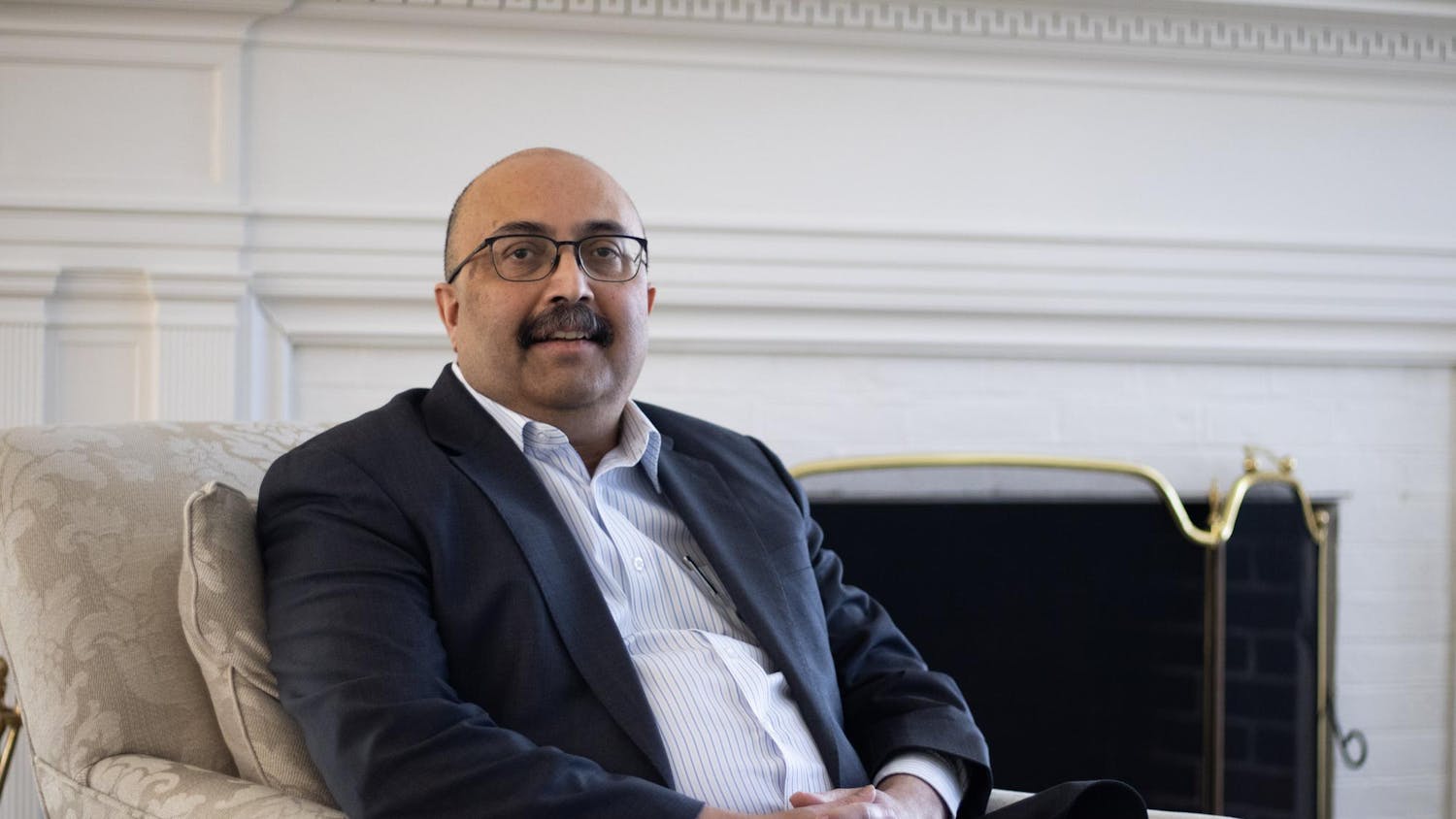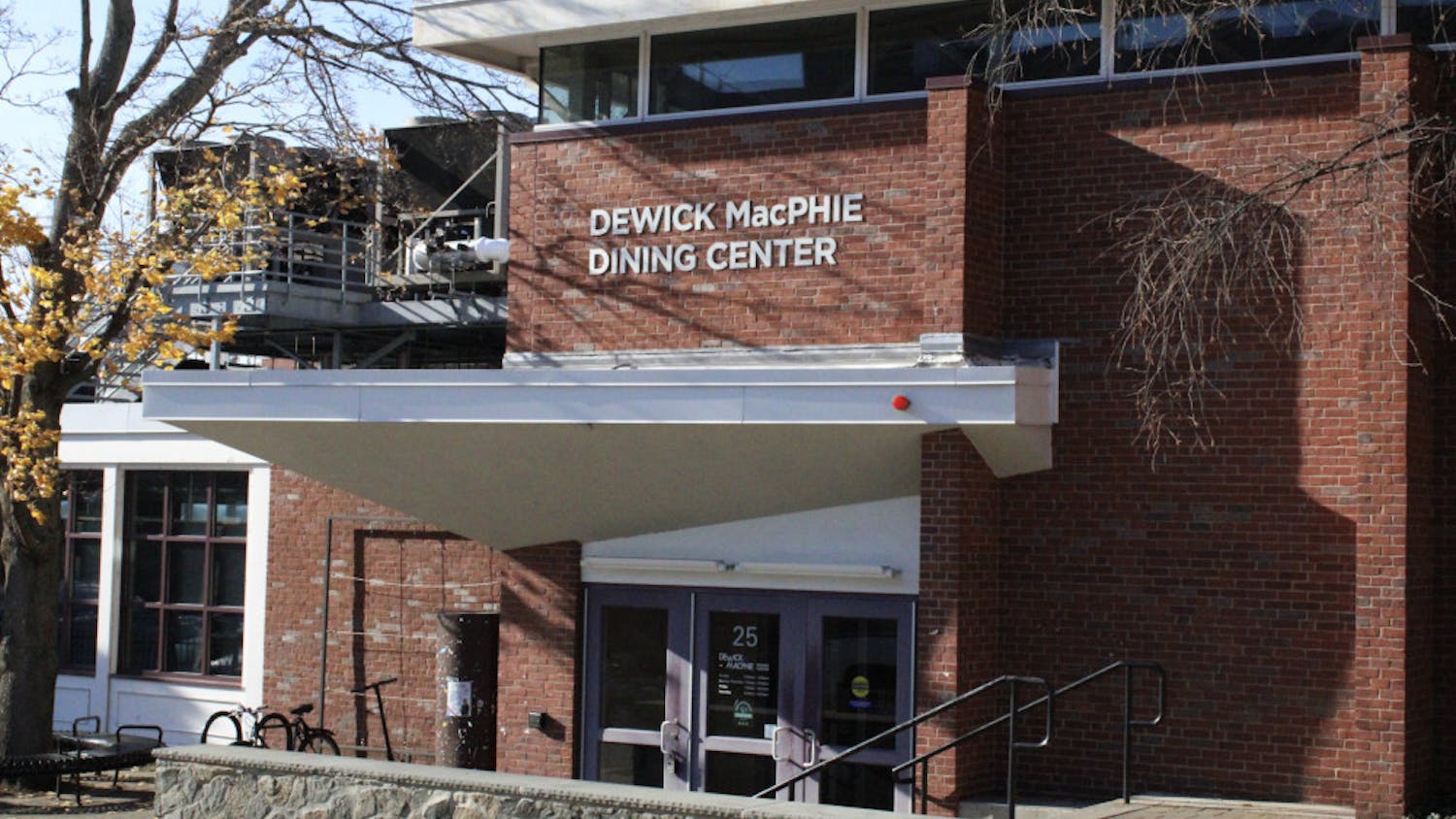This year, the 2017–18 Sherman Teichman Education for Public Inquiry and International Citizenship(EPIIC) colloquium “Is the Liberal World Order Ending?” is for the first time under the leadership of Abi Williams, the newly appointed director of The Institute for Global Leadership (IGL) and professor of the practice of international politics at The Fletcher School of Law and Diplomacy.
Williams said he chose the topic of this year's colloquium, a year-long class offered through the Experimental College and culminating with a student-organized symposium, based on its relevance to contemporary politics.
“As the professor in charge of [EPIIC], I have had a central role in conceptualizing the colloquium. The first important decision I had to make was what was going to be the theme for the two-semester colloquium, and I decided that the theme would be ‘Is the Liberal World Order Ending?’” Williams said. “That’s an important question which is critical for the future of our international system, and it’s a question which demands urgent answers."
Kai Abe McGuire, a colloquium member, said that this is the first time the theme of the EPIIC colloquium has been phrased as a question.
“I think [the] reason that it appears to be really pertinent today is because a lot of the tensions that exist within the ‘liberal world order’ have been at a simmer level, but a lot of different factors (economic, social, technological, political, military) have turned the burner up from simmer to boil," McGuire, a senior, said. "Suddenly, you see these flare-ups of events and conflicts and provocations that have really brought this issue to the fore."
One unique aspect of the EPIIC colloquium is that many guest lecturers come to speak with students who are taking the course. Williams said he chose faculty who were specialists.
“Deciding who I would reach out to has a lot to do with the course, I tried to reach out to colleagues on the faculty who were specialists and academics in a particular area. So far, we’ve had colleagues from the political science department, the philosophy department and also The Fletcher School,” Williams said. “This is a very unique thing about EPIIC, because by the end of this semester, the students in the course would have had not only me, but probably a dozen other professors, and so they are exposed to a range of faculty at Tufts.”
McGuire also emphasized the wide variety of guest lecturers the class is exposed to. The guest lecturers can be both academics, such as Ioannis D. Evrigenis, professor of political science and chair of the Department of Classics, or practitioners, such as anti-apartheid activist Mac Maharaj.
Lorenzo Lau, a colloquium member, said that his interest in being a part of the EPIIC colloquium was piqued by the promise of meeting interesting people and being challenged in his last year as an international relations student.
“In this class, I’ve learned more than I have in my first three years here,” Lau, a senior, said.
Williams said the panels and presentations at the The Norris and Margery Bendetson EPIIC International Symposium, which will be held from March 1–4, 2018, will touch on themes such as the meaning of liberalism, institutions which have underpinned the liberal world order and changes to this order.
According to Williams, developing strong connections between IGL and schools at Tufts is a priority.
“It is important for the future of IGL that the institute develops strong relationships and bridges to all the main schools at Tufts … because IGL will always need those partnerships in order to achieve the goals of the institute,” he said.
Williams hopes that his students can take away a good understanding of the tensions inherent in liberalism after being a part of this year's EPIIC colloquium.
“I hope they will also begin to develop their own perspectives and their own sense of what they believe in, and their own approach to these very important questions … [and] to understand, and have an appreciation of complexity and of ambiguity," Williams said. "There are no easy answers to these very difficult issues."
2017–18 EPIIC colloquium asks "Is the Liberal World Order Ending?"

Professor Abiodun Williams gives a lecture to his EPIIC class in Lane Hall on Oct 3.





